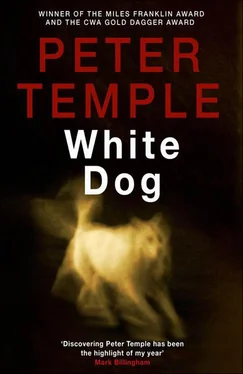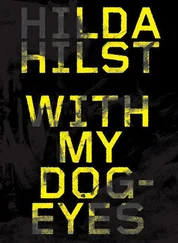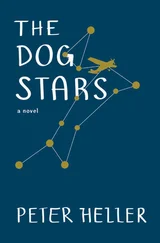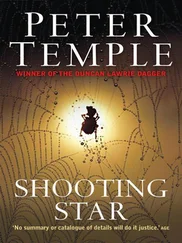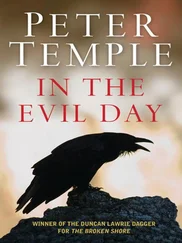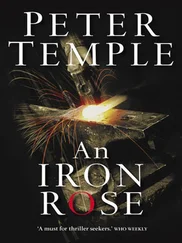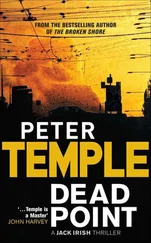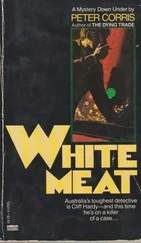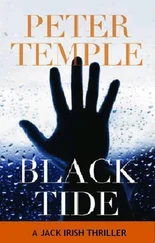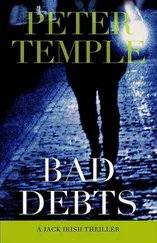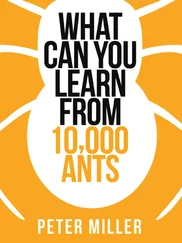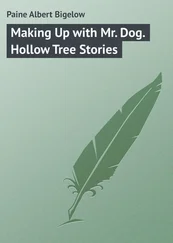Peter Temple - White Dog
Здесь есть возможность читать онлайн «Peter Temple - White Dog» весь текст электронной книги совершенно бесплатно (целиком полную версию без сокращений). В некоторых случаях можно слушать аудио, скачать через торрент в формате fb2 и присутствует краткое содержание. Жанр: Триллер, на английском языке. Описание произведения, (предисловие) а так же отзывы посетителей доступны на портале библиотеки ЛибКат.
- Название:White Dog
- Автор:
- Жанр:
- Год:неизвестен
- ISBN:нет данных
- Рейтинг книги:4 / 5. Голосов: 1
-
Избранное:Добавить в избранное
- Отзывы:
-
Ваша оценка:
- 80
- 1
- 2
- 3
- 4
- 5
White Dog: краткое содержание, описание и аннотация
Предлагаем к чтению аннотацию, описание, краткое содержание или предисловие (зависит от того, что написал сам автор книги «White Dog»). Если вы не нашли необходимую информацию о книге — напишите в комментариях, мы постараемся отыскать её.
White Dog — читать онлайн бесплатно полную книгу (весь текст) целиком
Ниже представлен текст книги, разбитый по страницам. Система сохранения места последней прочитанной страницы, позволяет с удобством читать онлайн бесплатно книгу «White Dog», без необходимости каждый раз заново искать на чём Вы остановились. Поставьте закладку, и сможете в любой момент перейти на страницу, на которой закончили чтение.
Интервал:
Закладка:
‘Mr Irish. Tony Haig.’ A rough voice.
‘Mr Haig, I’d like to talk to you about matters concerning Mickey Franklin,’ I said. ‘Is that possible?’
‘Of course,’ he said, no hesitation. ‘I’m edge-to-fucking-edge this week though… listen, why don’t you come around to my place tomorrow night, evening, it’s early, a little gathering, we’ll go off and have a chat? How does that fit?’
‘Fine,’ I said, not showing my surprise.
‘It’s a building called Marengo in…’
‘I know it.’ Everyone knew the Marengo, designed by an architect with popstar status.
‘Around six, they’ll have your name at the desk. See you.’
I drove to the Prince, squeezed the Stud into a half-occupied loading zone. The men were at battle stations, bickering.
‘Well, you’re a bloody stranger,’ said Norm O’Neill. ‘Put us into these Sainters, bloody poisoned chalice, then we never see hide nor hair of ya.’
‘I was thinking we might go on Sunday,’ I said. ‘Carlton again, at Docklands.’
‘The tent,’ said Eric Tanner. ‘Bloody disgrace a great outdoor game now gets played in a circus tent.’
‘Tell you what,’ said Norm O’Neill, ‘no shortage of clowns in the tent when the Saints play. Young and old, the big fella can’t clap hands, misses. Needs a damn good lookin over by the eye, feet and hand specialist.’
‘Eye, feet and hand?’ said Wilbur. ‘What kind of specialist is that?’
‘Jesus, I don’t know,’ said Norm. ‘Ever heard of coordination? Sometimes I wonder about the ignorance in the world.’
27
On the twenty-fifth floor, the lift stopped and allowed me into a room in the building’s core, a box of reinforced concrete, but not claustrophobic, lights in four deep alcoves and spots in the ceiling. The effect was of a small Moorish courtyard.
I crossed to a steel door pretending to be made of wood. An electronic keypad glowed. Above it was a button with the camera symbol. I knew about this. The entrant was required to put in a code number, press the button that switched on the video cameras to give security a full view of the lift and the anteroom. If this didn’t happen quickly, it triggered a security alert. Inserting or adding a number was an alarm signal and armed people would arrive inside a minute.
I pressed the button marked Ring. The electronic sentry went green with approval, I was being watched from the foyer, where I’d given my name.
The door slid open, revealing a short passage. I went down it into a double-height panelled foyer with a staircase rising to a landing. At left and right were sets of double doors, eight panels each, no doubt salvaged from some nineteenth-century boom-time building long fallen to the breaker’s ball.
A man appeared on the landing. Medium height, medium age, full head of crisp greying hair, medium length, brushed back and to the side with a parting.
‘Jack,’ he said, warmth in the single word, and started down the stairs, treading lightly.
I waited.
‘Tony Haig,’ he said. ‘I told them to ring me when you got here.’
A perfect dark suit, white shirt, grey tie, regular features, the nose a trifle truncated — he could have been the life model for a dummy in Myer’s window in 1965.
We shook hands. He showed the strength in his hand but he didn’t overdo it. ‘Come up,’ he said. ‘I’m glad you rang, thought about ringing you. More than once.’
We climbed the staircase side by side. I felt his arm behind me, just touching my jacket, as one might escort an elderly relative up a staircase, taking care but not wishing to suggest the need for it.
‘There’s a bit of symmetry about you being here tonight,’ he said.
You and explosions. There’s a fearful fucking symmetry.
‘Yes?’
‘We’re celebrating the resurrection of Seaton Square, Mickey’s Brunswick project. That closes a chapter, not so?’
‘I don’t know,’ I said. ‘I’m never sure whether anything’s finished or just lying in wait.’
Haig laughed, it was a genuine sound, good-humoured. ‘Spoken like an old-world pessimist,’ he said.
The hand behind me touched me in the small of the back, a gesture of intimacy and affection. It was a European touch, not what someone did casually to another man going into the pub in Tingaboora or Rainbow.
‘Glad you could come, Jack,’ he said.
I reached the landing and he opened a door and ushered me through. We stood above a big room, longer than it was wide. Two or three dozen people were standing with drinks, a small bar set up in a corner, white-shirted waiters with trays moving in the crowd.
Beyond a wall of glass lay a vast scape of lights, horizontal and vertical, moving and still, pinpricks, strings, clusters, pillars, silver, pinks, yellows, blues, reds. At this height, everything was calmed by distance and rain.
‘I don’t know who you’ll know,’ said Haig.
I saw Steven Massiani near the window with two men and a woman.
‘Probably no one,’ I said.
We went down the two steps to the room. A waiter offered champagne in expensive flutes, the wine with a minute silver bead.
‘The Billecart Salmon,’ said Haig. ‘Know the stuff?’
‘Only by name,’ I said, drinking some.
‘Good fizz,’ he said. ‘Too good for some of this lot.’
He took me around, introduced me to people. He didn’t say what I did for a living and he didn’t say what they did. Most of them were youngish, in black or grey, jackets worn over collarless shirts, the full range of hair, from nothing to plenty. Many of the men needed a shave, some could have done with a swift kick up the arse. One woman had hair like a monk’s cap and wore a silken sleeveless top slit to the belly, olive-skinned bulges showing. I knew the names of a few of them: restaurant owners, fashionable architects, a gallery owner, a photographer, two artists. We stopped briefly at the small court of an ageing film director — two women and a youth I thought I’d seen on television, mostly cheekbones and big brown eyes, all absorbing cinematic genius through their pores. The director paid close attention to Tony Haig, ignoring his own acolytes while we were there. It was a food chain.
Haig left me with two men who soon returned to talking money. I thought it was money, I registered only the term ‘capacity to service’. They could well have been talking about stud horses.
I walked across to the window, uneasy, knowing that I shouldn’t have accepted the invitation, should have met Haig at another time, perhaps not at all. There was no reason to be in this place, with these people.
The view was dazzling but the canvas was too big. Like all views, it needed to be painted to be appreciated properly. When I turned, I saw the paintings on the long gallery wall, well spaced, all sizes. I went up the stairs and had a look. Modern paintings, no artist I recognised, all oils, lots of landscapes and seascapes — cliffs, promontories, bays, coves, water, light. There was also a sequence of dark paintings by the same artist, views of snow-topped peaks, icy lakes, forests and plunging rivers that conveyed a loneliness and a sadness.
And there were portraits, marked differences in style but all striking because the subjects, men and women, had faces of character. At the end of the line was one of Tony Haig. He was in a collarless white shirt, tanned face half in shadow. Behind him was a blank wall, white, rough-plastered, with a single aperture, like a gun-slit. One tendril of a creeping plant was stealing through the slit, invading, a thin green snake, a leaf at its tip.
It was a fine painting, the Haig portrait. They were all worth looking at, paintings of merit as far as I could judge. There was not one that you would pass by with a single glance.
Читать дальшеИнтервал:
Закладка:
Похожие книги на «White Dog»
Представляем Вашему вниманию похожие книги на «White Dog» списком для выбора. Мы отобрали схожую по названию и смыслу литературу в надежде предоставить читателям больше вариантов отыскать новые, интересные, ещё непрочитанные произведения.
Обсуждение, отзывы о книге «White Dog» и просто собственные мнения читателей. Оставьте ваши комментарии, напишите, что Вы думаете о произведении, его смысле или главных героях. Укажите что конкретно понравилось, а что нет, и почему Вы так считаете.
